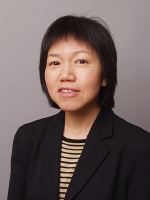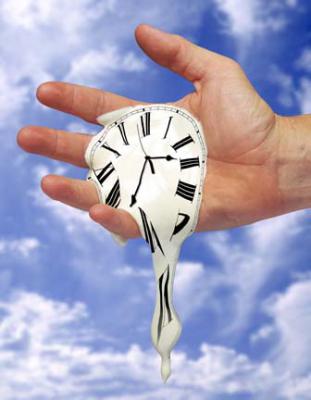Serendip is an independent site partnering with faculty at multiple colleges and universities around the world. Happy exploring!
Literature Across Deep Time

Evolving Systems
January, 2010 Core Group Meeting
Background, Summary,
and Continuing Discussion
Literature Across Deep Time
![]()
Background: On March 16, 2010, the core group of the Evolving Systems Project will be meeting with Wai Chee Dimock, William Lampson Professor of English & American Studies @ Yale University, who experiments with close readings across different widths of space, and across a range of time-scales. Background reading includes two chapters from her 2006 book, Through Other Continents: American Literature across Deep Time: Introduction: Planet as Duration and Extension & Chapter 6: Nonstandard Time
A meeting summary (Arlo)
First off I would like to extend a word of gratitude to our guest Wai Chee Dimock for her short, but very sweet visit to our working group. Wai Chee’s presence ignited a series of very interesting conversations that I thought were some of the more interesting in our times together.
The meeting started out with Anne Dalke introducing Wai Chee and her work on challenging the limits of literary boundaries, and importantly trying to better understand the relationships of texts across boundaries. The point was made that Wai Chee’s writing expresses time as invariance as opposed to the perception of time occurring at different scales. The dialogue continued with the participants introductory statements, which interestingly persisted to the end of the meeting. One only had to introduce themselves and some of the work they do in the context of Wai Chee’s intro and conversations quickly flowed.
One of the first conversations/debates was rooted in the differences between Form and Deform/ation….stemming from my (Arlo Weil) research into how the Earth responds (deforms) to tectonic stresses. Though mostly rooted in semantics (at least in my minds eye), the conversation about form, substance, and what it means to change form made me rethink the reasons why in geology we define the natural form of things as a deformation rather than as formation.
We talked about how time fits into our disciplines and how it is characterized differently depending on context and the way we think about transitions and the scales of transitions. It was mentioned that literature, and importantly literary critique, is often unable to cross times – constrained within certain frames of reference…boxes. The idea was explored that literature, and the discourse that it inspires – can get stuck in one window or another without the ability to exist in an open plane or continuum.
Paul Grobstein in his introduction talked about what time meant to the brain - the fact that the brain only exists in the present. He modeled the brain as a box in which a situation is only conceived in the immediate moments before and after it occurs – and therefore can only exist in the now, the present. Consciousness, which exists as a smaller box in the larger ‘NOW’ box, manipulates this space/time phenomenon, but it does so only in the abstract ….. consciousness itself is responsible for establishing the temporal arrangements after the initial biological input and outputs into the bigger brain box.
The conversation moved onto rates and the human experience – or trouble therewith – at our ability to understand rates of change that happen at vastly different scales. The example of global warming came up and the effects of rate change how it manifests in the human understanding of change. What the current changes in temperature mean in the longer climate history of the Earth from ice covered to hothouse.
Bharath Vallabha in in his introduction spoke of conflicts between cognition/consciousness and culture – the ability to capture the truth, or even understand the truth. This led back to a discussion on and the distinctions of Einstein versus Newton’s vision of time – that is the abstract curve looping time (E) versus the straight ever-forward moving times arrow (N). Someone brought up the old adage (I don’t remember the exact context, but I loved the metaphor) …..past/present/future events are like stars, they are all seen in the nights sky as being the same distance from the observer, and thus flattened. This conversation ended with the unanswered question – can you live in a timeless culture. Some argued yes, for me it was unimaginable.
The dialogue made a hard right and went into the student experience (after all we are all college professors) and the student’s perspective of living in the now – that is, do students have the world experience or the context in which to put subjects like literature into an imaginable time framework? Can they take literature out of its temporal context and see what it might look like outside of time’s arrow? This led Wai Chee to talk about history (historians) versus literature (literary critics) and the many conflicts that exist in these spheres of inquiry in the context of time and timelessness.
Wai Chee ended our meeting with the statement - it is more important to know in a bubble than to not know at all - which I took to mean, it is more important to experience and expand one’s mind in a time’s arrow reference frame than to not conceptualize, know, or experience anything in timelessness.
As I was emotionally and intellectually involved in this conversation – it was difficult for me to take useful notes – so I apologize if I left some important points out, or did not fully articulate the spirit of our discourse.
Continuing discussion (below)




Comments
Hurry up, please: it's Time! OR. NOT.
I was VERY SAD @ the beginning of our conversation yesterday that so few of us were able to make it ...
... and then SO ENCOURAGED, by the end of it, by how "far" we had gone. So am having second thoughts, first, about #s being a sign of success ... perhaps, sometimes, a smaller group can make more "progress," because it is led off in fewer tangents ...?
What turned out, for me, to be the surprisingly energetic center of the conversation was this matter of time: the different ways it might be measured, the different ways it operates in each of our disciplines (not to mention individual brains!), and the unthinkable-to-me-possibility of living in the world without any concept of time @ all (I don't think this is any more possible than doing "object-orientated-ontology" without having a human perspective; nonetheless....).
I was quite struck by Wai Chee's observation that most folks in literary studies do not have the training to think about literature across "deep time" (actually, across time spans of any magnitude), because we are all specialists in a very particular place and time. In a small place like Bryn Mawr, the inability to do this sort of syncretic/synthetic work is particularly limited, because each of our little departments is constructed as a collection of different time-and-place-specific specialists. In aiming for that sort of postage-stamp coverage, we effectively prevent ourselves from thinking more broadly ....
And! yet! Wai Chee also made the counter observation that to "think of anything as 'literature' implies a sequence, a before-and-after" (i.e.: a sense of TIME....): "literature makes no sense in the absence of the measuring tape of time..." So we (literary scholars) really are caught between two warring paradigms ...? To understand this better (and maybe to figure out how better to negotiate that tension), I'd still like to hear lots more about how time "looks/feels/operates" in other disciplines. For example, having heard elsewhere of Hank's contributions to a Kaleidoscope proposal on "Mindfulness," I am eager to hear about the possibility that Buddhist and other meditative practices might be attempts to get out of time (and out of the consciousness in which it is embedded...). And I would like to learn more about Arlo's notion that -- although the times measured by geologists may appear to be "Newtonian" (because measured sequentially) they might actually more accurately and productively be understood as "Einsteinian," since all those "gaps," across such huge time spans, make possible so many "folds"....
I was also struck with what happened when -- building on Paul's insistence that time is a product of consciousness-- Arlo observed that, since literature is "such a sophisticated cognitive category," any form of WRITING is going -- inevitably -- to enmesh us in time. I'm thinking, though, of multiple alternatives: postmodern literary experiments (like those of Mark's favorite, Gertrude Stein) in the continuous present .... and/or Dali-esque images that evoke a sense of timelessness, or @ least of the slipperiness of time ...

Post new comment